How Digital Sales Rooms Affect Sales Psychology

A digital sales room is a sales enablement platform that helps businesses showcase and sell their products or services to customers online.
It is a virtual space that replicates the traditional in-person sales experience by providing tools and features for product presentation, customer interaction, transaction processing, and document sharing.
More recently, digital sales rooms have been developed with sales psychology in mind.
Designed to not only help engage and interact with customers in novel ways, digital sales rooms are now helping sales reps tap into cognitive science tactics to improve their sales effectiveness.
In this article, we are going to look into how understanding customer behavior can help you better optimize your sales process and how sales psychology ties into the effectiveness of digital sales rooms.
The Importance of Understanding Customer Behavior
As a business using digital sales rooms during the sales process, it is extremely important to understand customer behavior.
And while digital sales rooms can help by providing product information, pricing calculators, collaboration tools, and document-sharing features, is it still important for your B2B sales reps to understand customer behavior to optimize sales processes and best meet customer needs.
Understanding customer behavior will help your sales team tailor strategies to meet customer needs effectively and increase sales.
By analyzing how customers browse, what they buy, and why they abandon purchases, your business can optimize website design, product placement, pricing, and marketing strategies.
Moreover, insights into customer behavior enable personalized sales experiences, enhancing customer satisfaction and loyalty.
In the competitive digital landscape, businesses that grasp customer behavior gain a competitive edge, ultimately driving growth and profitability.
Cognitive Biases in Digital Sales Rooms
The first thing we are going to explore around sales psychology and how it can be used within digital sales rooms is cognitive biases.
Explanation of Cognitive Biases
According to an article by Verywell Mind, cognitive bias is a thinking error that influences people's decisions and judgments by distorting how they process and interpret information.
These biases often occur as a result of our brain's attempt to simplify information processing.
Essentially cognitive biases are mental shortcuts that can lead to perceptual distortion, inaccurate judgment, and illogical interpretation, or what is broadly called irrationality.
In the context of sales processes, understanding these biases is critical because they significantly impact the way customers make purchasing decisions.
Common Cognitive Biases in Remote Sales
Confirmation Bias
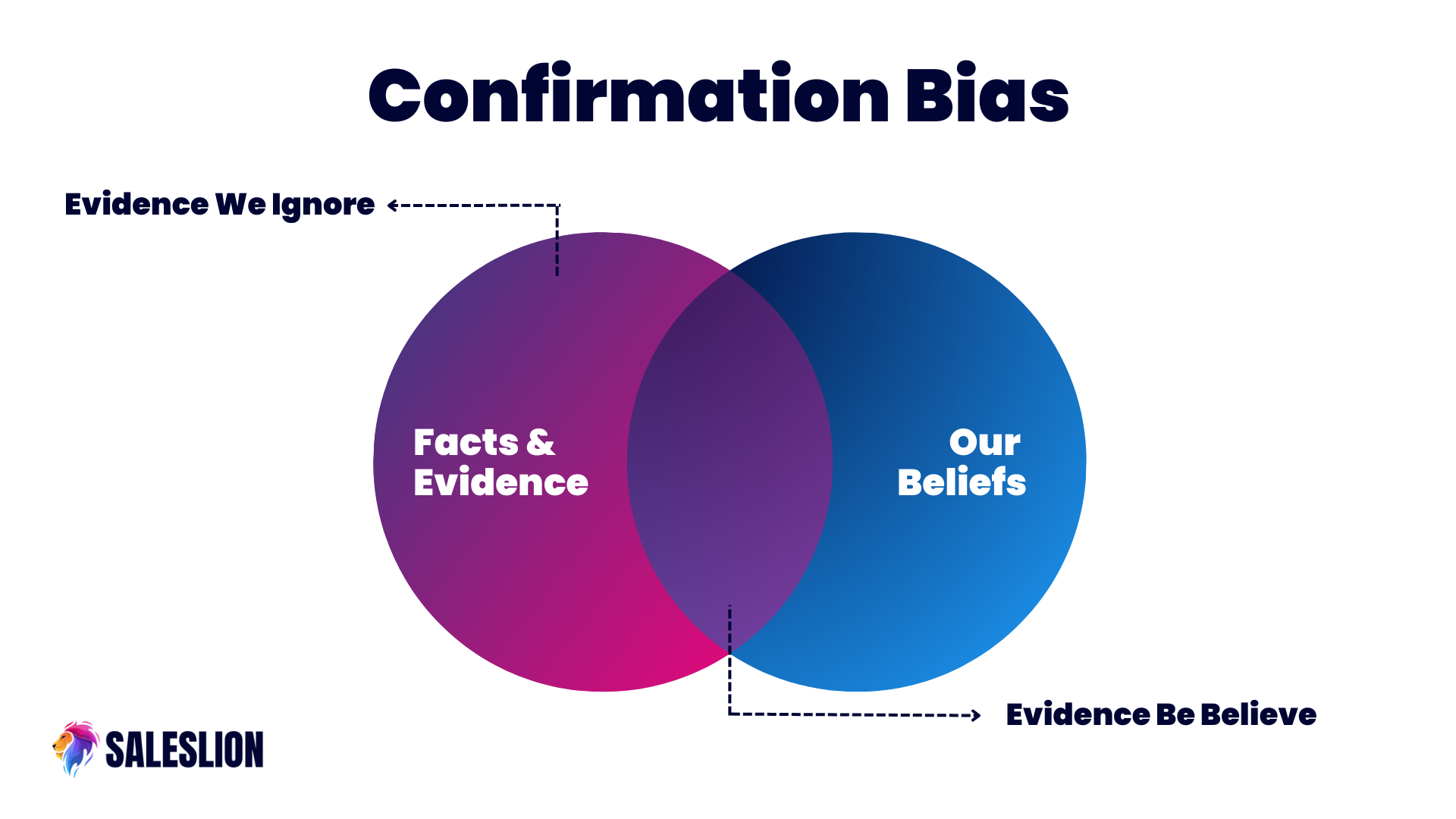
Confirmation bias is the tendency to search for, interpret, and remember information that confirms our preconceptions.
In the sales process, customers may look for information that supports their desire to purchase while ignoring or dismissing information that suggests they should reconsider.
Knowing this information, digital sales rooms can help businesses by highlighting information that favors a purchase throughout the sales process, such as product information, pricing options, and case studies.
Availability Heuristic
The availability heuristic is when our brains take a shortcut, thinking something is more likely to happen if we can easily remember similar things happening before.
In sales, this can make customers think they'll have better results or be happier with a product just because they remember good things about it easily. This is why high-quality branding, messaging, and marketing are so vital for successful B2B sales processes.
Additionally, with document-sharing features within digital sales rooms, businesses can share case studies and testimonials with potential customers, tapping into the availability heuristic.
Anchoring Bias
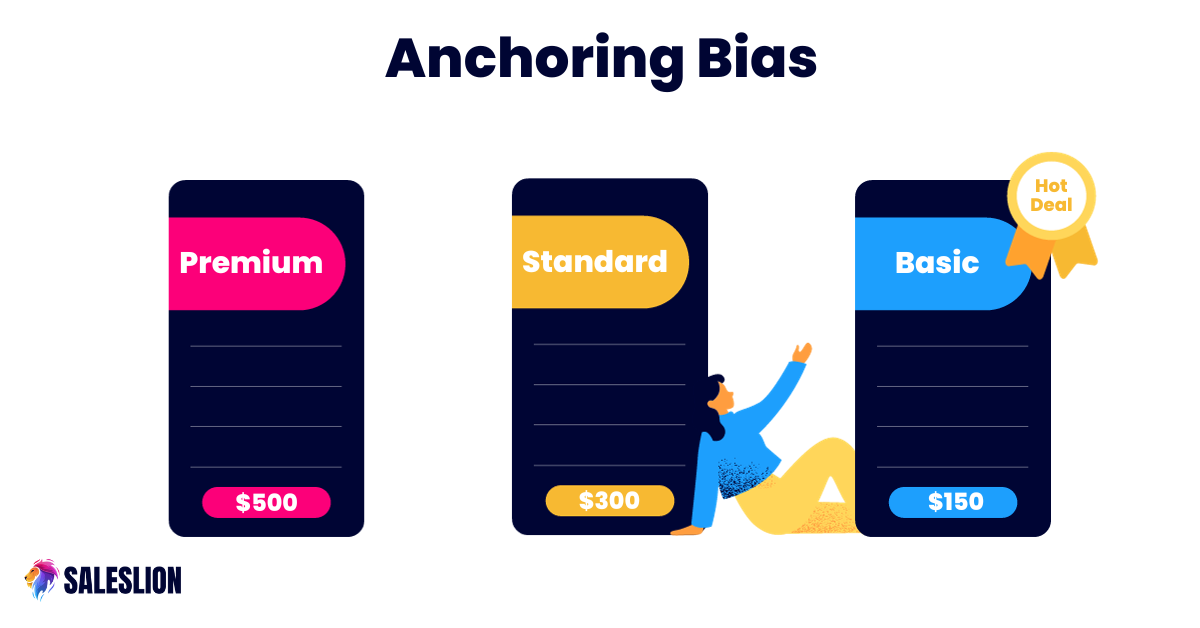
Anchoring bias occurs when people rely too heavily on the first piece of information they encounter when making decisions.
In digital sales, this could involve customers anchoring their willingness to pay to the initial price they see.
Digital sales rooms can further influence this bias by strategically displaying initial higher prices alongside discounted ones, creating a perception of value.
Understanding each of these cognitive biases is essential for B2B businesses navigating the remote selling world.
Especially with the use of digital sales rooms, understanding how to design customer experiences that minimize bias-related pitfalls and help customers make more informed decisions can drastically improve the success of your sales process.
Emotional Triggers in Digital Sales
In the realm of digital sales, understanding and effectively leveraging emotional triggers is paramount to engaging customers, compelling them to make purchasing decisions, and fostering lasting brand loyalty.
Just like with cognitive biases, understanding customer behavior in regards to emotion is important to understand to most effectively sell to customers and close deals.
The three most commonly used emotional triggers that we are going to be exploring are scarcity and urgency, social proof and FOMO (Fear of Missing Out), and emotional storytelling.
The Role of Emotions in Decision-Making
Emotions play a pivotal role in human decision-making processes.
Luckily for salespeople, most people are far from being purely rational and often make choices that are heavily influenced by their emotional states and responses.
And as the world of sales shifted to a digital landscape, this behavior held. Emotions can either act as catalysts or obstacles in the consumer decision journey, significantly impacting the likelihood of a sale.
Being able to understand and influence these emotions is the difference between effective and ineffective sales professionals and sales processes.
Emotional Triggers Commonly Used in Digital Sales
Scarcity and Urgency
Scarcity and urgency are powerful emotional triggers that tap into the innate fear of missing out.
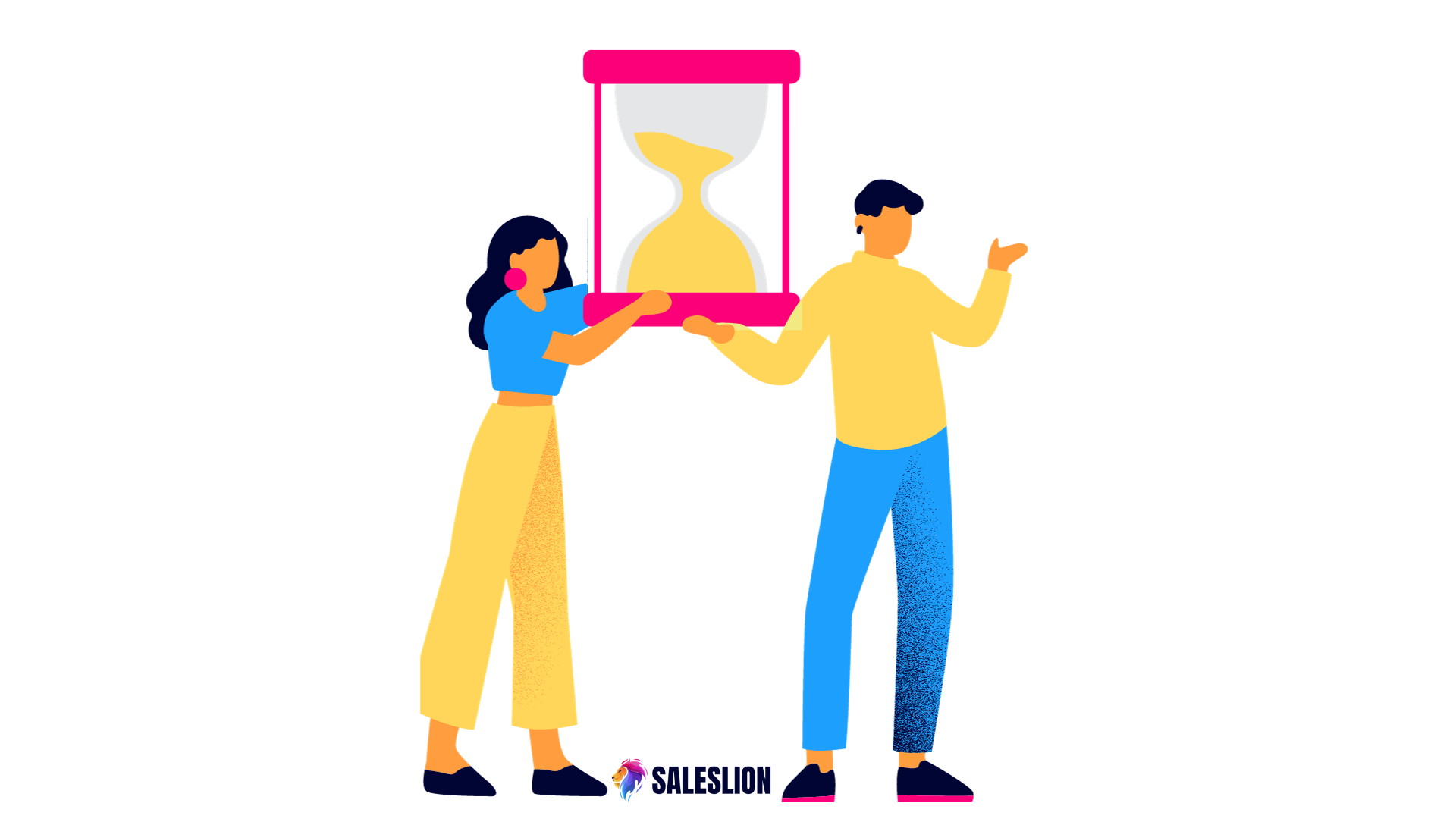
Within digital sales rooms, businesses can employ tactics such as limited stock warnings, countdown timers, and phrases like "Only 3 items left!" to create a sense of urgency.
When using these strategies in your digital sales room, businesses can prompt customers to make quicker purchasing decisions.
Social Proof and FOMO (Fear of Missing Out)
Social proof leverages the concept that people tend to follow the actions and choices of others.
In digital sales, this is exemplified by showcasing customer reviews, ratings, and testimonials.
When potential buyers see that others have had positive experiences, it triggers the fear of missing out.
Digital sales rooms can be incredibly beneficial in influencing customers through social proof by presenting testimonials and case studies within the sales process. As well as helping increase close rates, social proof can also help increase trust between customers and the company.
Emotional Storytelling
Storytelling is an age-old tool for invoking emotions, and it remains potent in digital sales.
Businesses use storytelling to create a connection between their products and customers' aspirations, desires, or pain points.
By crafting narratives that resonate emotionally, companies can evoke empathy, desire, or a sense of identity in customers, leading to increased engagement and conversions.
Digital sales rooms are powerful tools for this specific purpose as they allow businesses to paint a compelling and emotional narrative about their product throughout the sales process.
While many digital sales rooms (the Saleslion digital sales room especially) are designed with these emotional triggers in mind, if your sales team understands these behaviors as well, your processes will be greatly optimized.
When strategically employed in digital sales to appeal to customers' emotions, emotional triggers effectively drive prospects to take desired actions.
By understanding the psychology behind these triggers, your business can enhance your digital sales strategies, foster deeper customer connections, and ultimately achieve greater success in the competitive online marketplace.
User Experience Design and Cognitive Load
User experience (UX) design is fundamental to the success of sales processes and digital sales rooms are king for effective UX design.
By optimizing the user experience, businesses can reduce cognitive load, making it easier for customers to navigate, make informed decisions, and ultimately complete their purchases.
A well-designed digital sales room that simplifies the buying process, minimizes distractions, and fosters trust and security can significantly enhance customer satisfaction and drive sales growth in the competitive online marketplace.
The Significance of UX in Digital Sales Rooms
UX design in digital sales rooms refers to the art and science of crafting online environments that not only attract and engage customers but also facilitate seamless, intuitive, and enjoyable interactions.
In the context of digital sales, a positive UX can significantly influence purchasing decisions.
When customers find the sales experience easy, enjoyable, and trustworthy, they are more likely to make purchases, return for future transactions, and even become brand advocates.
Additionally, identifying the best target audience for your B2B solution is crucial to developing UX design that most effectively converts leads into customers.
Cognitive Load and Its Impact on Decision-Making
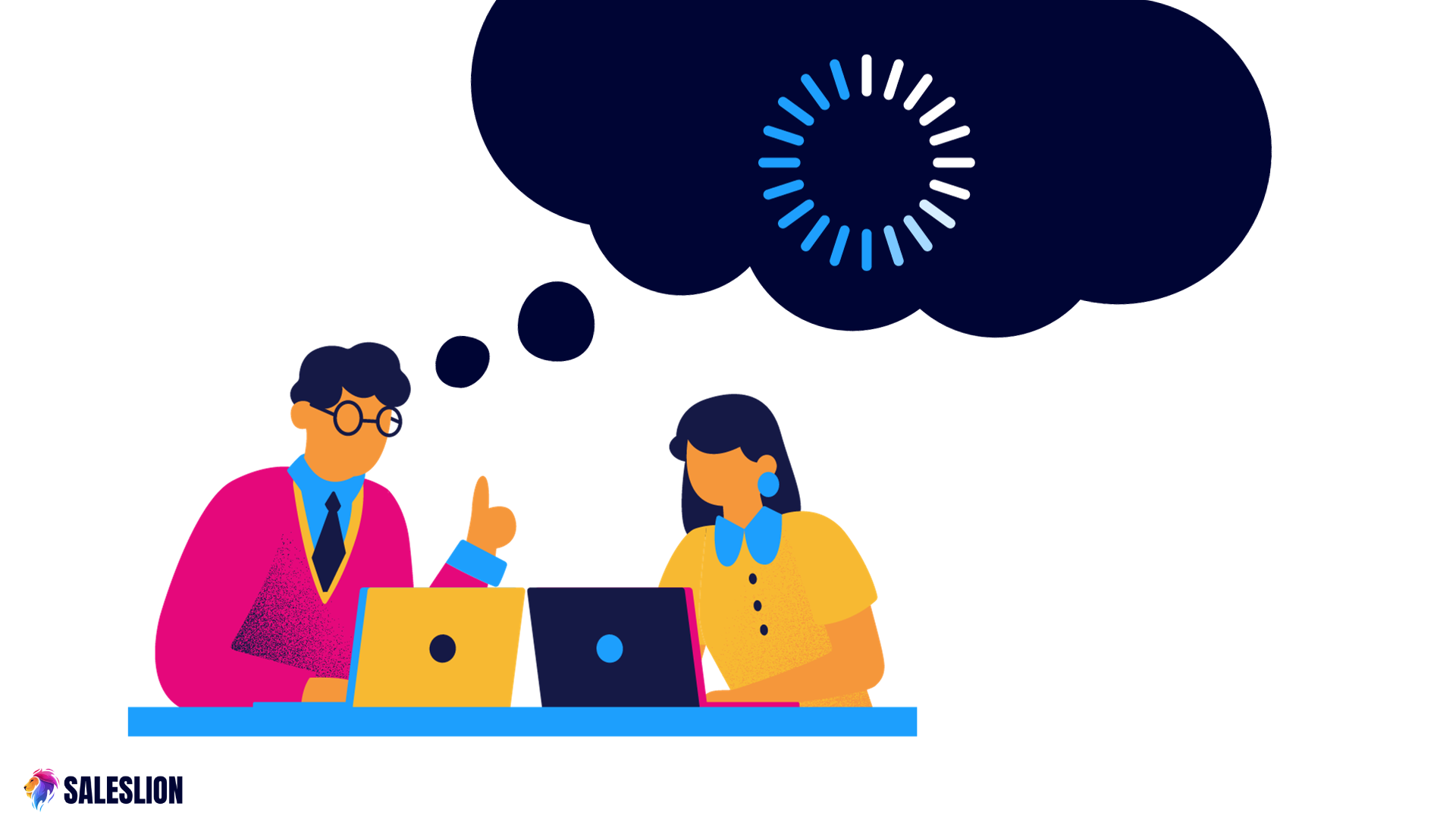
Cognitive load refers to the mental effort required to process information and make decisions.
In typical sales processes, customers are bombarded with information, choices, and stimuli, which can contribute to cognitive load.
When the cognitive load is high, decision-making becomes more challenging, and customers may become overwhelmed, leading to decision fatigue, cart abandonment, or even exiting the sales process without completing a purchase.
And this is where digital sales rooms stand apart from traditional sales processes.
By understanding effective UX and the power of cognitive load, digital sales rooms effectively simplify the buying process, minimize distractions, and create a sense of trust and security from discovery call to proposal.
Personalization and Behavioral Psychology
In the dynamic world of digital sales rooms, personalization, and behavioral psychology meet to create a powerful overlap that can revolutionize customer engagement and drive sales.
The Power of Personalization in Digital Sales
Personalization is the art of tailoring the sales experience to individual customers based on their preferences, behaviors, and demographics.
In digital sales rooms, personalization has evolved into a potent tool that enhances customer satisfaction and loyalty while boosting conversion rates.
By leveraging data analytics within digital sales rooms, businesses can offer customers highly relevant product recommendations, customized content, and personalized marketing messages.
Behavioral Psychology and Its Applications in Digital Sales
In the world of sales, behavioral psychology examines how customer behavior is influenced by their environment and experiences. This plays a pivotal role in shaping the strategies employed within digital sales rooms.
Two notable aspects of behavioral psychology applied in digital sales are:
Reinforcement Learning
This concept involves rewarding desired behaviors and discouraging undesired ones.
In digital sales rooms, this reinforcement learning may look like providing incentives such as discounts, loyalty points, or exclusive access to customers who take specific actions like making a purchase, referring friends, or writing reviews.
Such positive reinforcement encourages customers to engage more deeply with the sales room.
Nudging and Choice Architecture
Nudging refers to gently steering customers toward making certain choices through subtle cues or design elements.
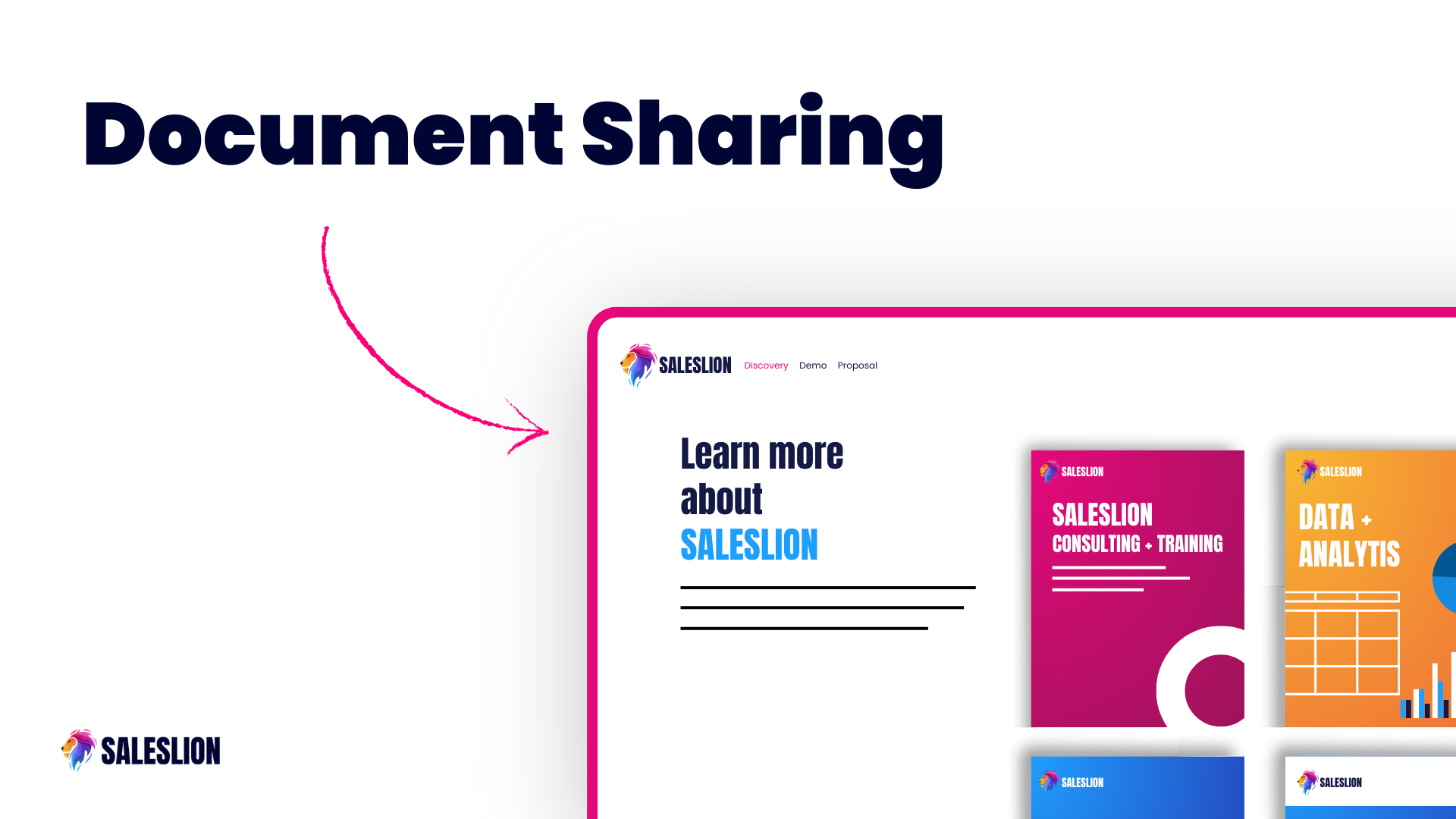
In digital sales rooms, choice architecture involves optimizing the layout, design, and presentation of products and options to influence customer decisions. For example, strategically placing high-margin products or highlighting limited-time offers can nudge customers toward specific choices.
Overall, by harnessing these principles of behavioral psychology, digital sales rooms can influence customer behavior and decision-making in a way that aligns with business goals and enhances the overall customer experience.
When coupled with personalization, these strategies create a dynamic and customer-centric environment where individuals feel understood, valued, and empowered to make informed purchasing decisions.
The Ethical Implications
Finally, and perhaps most importantly, let’s explore the ethical implications of utilizing sales psychology within the sales process and digital sales rooms.
First and foremost, transparency and honesty must form the bedrock of ethical sales practices.
While it is acceptable to utilize common customer behavior to help make a sale, deceptive tactics, and manipulation should be avoided at all costs.
Ensure that product information, pricing, and availability are accurately represented to build and maintain customer trust.
Furthermore, allow customers the space they need to make decisions free from excessive pressure or influence.
Ultimately, if you are consistent with providing value to customers during the sales process by utilizing collaboration tools such as solutions boards and priority tables, your sales team should have a clear understanding of customer needs, making manipulation completely out of the picture.
Prioritizing long-term customer well-being over short-term gains is also paramount. If you overuse strategies like creating scarcity and urgency, you might temporarily boost sales but harm trust and relationships over time.
Overall, while sales psychology can be beneficial in helping optimize sales processes and boost sales, your role as a sales professional should be ultimately to serve and provide value. Encourage customers to make purchases that genuinely benefit them and meet their needs.
Ethical sales psychology places customer interests at the forefront while achieving business objectives honestly and transparently.
To learn more about how to improve your sales processes with sales psychology and digital sales rooms, reach out to us today!
Ready to reinvent your sales process and tools?
One quick call and we'll share our approach - no pressure.
Schedule your demo